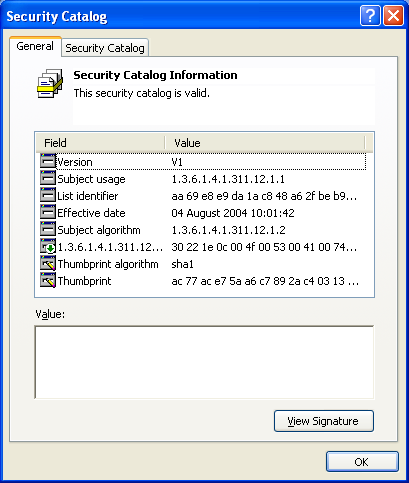Phoronix: Jcat 0.1 Released As Alternative To Microsoft Catalog Files
Richard Hughes of Fwupd/LVFS, PackageKit, and Colord notoriety last month announced Jcat as a new open-source project he initiated to serve as an alternative to Microsoft's Catalog files proprietary format...
Richard Hughes of Fwupd/LVFS, PackageKit, and Colord notoriety last month announced Jcat as a new open-source project he initiated to serve as an alternative to Microsoft's Catalog files proprietary format...






Comment